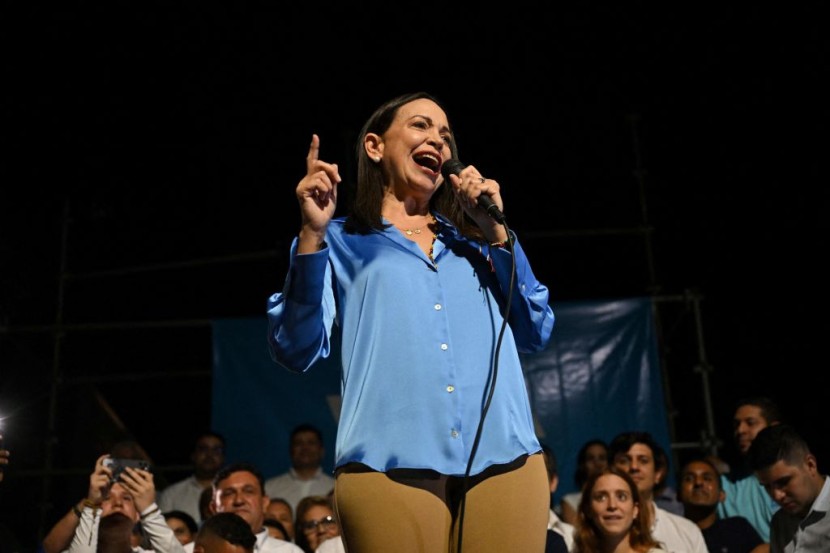In Venezuela's disapproval primary, Maria Corina Machado, an industrial engineer and former lawmaker, leads according to opposition leadership.
As of late Sunday, with 26.1% of ballot boxes counted, Machado has garnered 93% of the vote, as per Aljazeera.
Venezuela's 2024 Presidential Election

In the tumultuous political landscape of Venezuela, the upcoming 2024 presidential election holds the promise of change, yet the road to it is fraught with challenges for the opposition. Faced with past boycotts and the specter of a government-dominated electoral council, the opposition finds itself at a critical juncture, grappling with internal dynamics and external pressures.
In an unprecedented move, the opposition parties, determined to present a united front, have embarked on selecting a single candidate, seeing it as their best chance to challenge the incumbent. Despite the odds stacked against them, they decided to participate in the 2024 elections, a significant departure from their previous stance.
The proposal to hold a primary gained traction within the opposition ranks as early as May 2022, with a formal announcement in October of the same year. However, their plea for assistance from the National Electoral Council (CNE) went unanswered until September 2023.
Their demand was met with a suggestion to delay the primary to November, a move that the opposition flatly rejected, opting to organize the primary independently and set up an extensive network of over 3,000 polling stations.
The initial field of 13 candidates gradually whittled down to 10, leaving María Corina Machado, a former lawmaker, as the frontrunner by a significant margin in recent polls. However, despite her apparent popularity, her candidacy faces a considerable hurdle, according to The Washington Post.
Maria Corina Machado Leads Venezuela Voting
Machado has been barred from holding office for 15 years, a decision handed down by the comptroller-general, who now heads the CNE, raising doubts about her ability to contest the presidency if chosen. Ambiguity shrouds the recent agreement between the opposition and the government, signed in Barbados, concerning the eligibility of barred candidates.
While the opposition claims the deal paves the way for their participation, government representatives have offered contradictory statements, leaving the situation uncertain. Amidst these intricate political maneuvers, the United States made a notable move by easing some sanctions against Venezuela's oil and gas sector in response to the agreement.
This leniency was accompanied by a warning from US Secretary of State Antony Blinken that sanctions could be reinstated if the Maduro government does not begin lifting restrictions on opposition presidential candidates by November's end. As Venezuela navigates this crucial period in its political trajectory, domestic and international stakeholders closely monitor developments.
The push and pull between the opposition's determination to challenge the status quo and the government's stronghold over key institutions continue to shape the narrative, underscoring the high stakes in the upcoming presidential election. In this precarious balance of power, the fate of Venezuela's political landscape hangs in the balance, dependent on the resolution of complex challenges and the determination of critical actors to uphold democratic principles.
As the world watches, the spotlight remains on Venezuela, waiting to see if the 2024 presidential election will mark a turning point in the nation's trajectory or lead to further entrenchment of existing political divides, BBC News reported.








